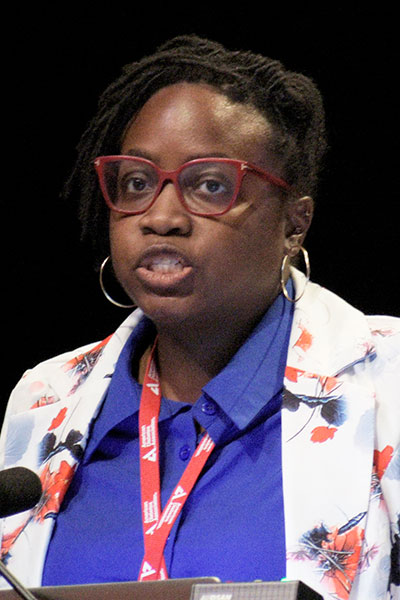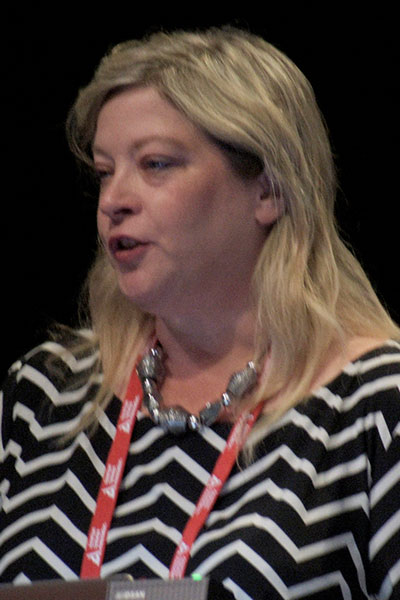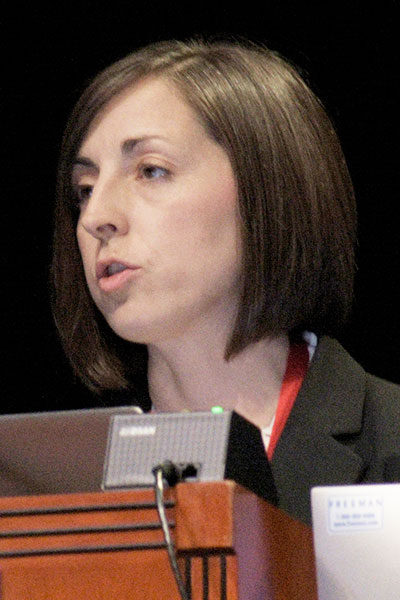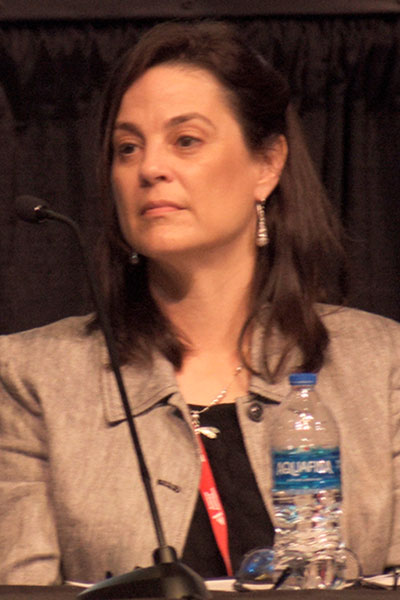
The American Diabetes Association® (ADA) wants to improve care for the 90 percent of people with diabetes who receive care for the disease from a primary care provider (PCP). The new Diabetes Primary Care Alliance aims to improve diabetes outcomes by accelerating the adoption of evidence-based standards of care in primary care.
“We are looking for 5,000 early adopters committed to improving diabetes care,” said Kevin A. Peterson, MD, MPH, ADA Vice President, Primary Care. “Those early adopters can drive improvement across all 280,000 primary care practices in the United States.”
Dr. Peterson opened a special symposium, ADA Primary Care Council—What Does a Person with Diabetes Need from Their Primary Care Team?, on Saturday afternoon, June 22. The session can be viewed on-demand by registered meeting participants on the virtual meeting platform. If you haven’t registered for the 84th Scientific Sessions, register today to access the valuable meeting content through Aug. 26.

There has been a confusing variation in services a person with diabetes can expect when they walk into a PCP office, Dr. Peterson said. Care can vary by geography, provider, insurance coverage, the provider’s knowledge and education, resources, and other factors.
The problem with this is less knowing how to improve diabetes outcomes and more getting providers to do what is already known to work and keeping up as clinical evidence evolves, he explained.

The Primary Care Alliance is working with educational and policy initiatives from the ADA’s Primary Care Council. The Council includes the ADA and seven primary care provider groups:
- American Association of Physician Associates (AAPA)
- American Academy of Family Physicians (AAFP)
- American Association of Nurse Practitioners (AANP)
- American College of Physicians (ACP)
- American College of Osteopathic Family Physicians (ACOFP)
- American Society of Health-System Pharmacists (ASHP)
- American Pharmacists Association (APHA)
“We don’t manage diabetes alone,” said Andrea Haynes, MD, representing AAFP. “It is a collaboration across the care spectrum.”
Like other providers, family physicians are challenged by changing technology, new drugs, new continuous glucose monitoring (CGM) systems, automated insulin dosing, and more.

Prevention is key, and patients should expect regular and routine monitoring for diabetic kidney disease, diabetic retinopathy, and foot care from their family physicians, Dr. Haynes said.
Nurse practitioners are the fastest-growing Medicare-designated provider population, noted AANP representative Kimberly D. Broughton-Miller, DNP, APRN, FNP-C, ENP-C, FAANP.
She identified key challenges for nurse practitioners such as providing equitable care, keeping current with evolving standards of care, improving patient access to diabetes-related technology, and achieving equitable reimbursement for their own services.

Physician assistants practice across all specialties and practice settings said Cara Orr, MS, MMS, PA-C, representing AAPA. Key challenges for these providers include keeping up with new information and concepts in diabetes management, integrating CGM and other emerging technologies, equitable care, and the growing administrative burden of prior authorization.
“Diabetes is a whole-body disease, and osteopathic medicine treats the whole person,” said Greg Cohen, DO, FACOFP, representing ACOFP. “About 30 percent of us are in primary care, and diabetes education has been the No. 1 request from our members in our last two surveys.”
Challenges for osteopathic specialists include patient education, resources to improve culturally competent care, improved patient access to new medications and technologies, and better access to in-person and virtual care team resources.

Internal medicine providers face similar challenges, said Dr. Peterson, speaking for ACP representative Sarah Candler, MD, MPH, FACP, who was unable to attend. The ACP is pushing for improved payment models. U.S. spending on primary care is about half that of other Organization for Economic Cooperation and Development (OECD) countries even as total U.S. health care spending far outpaces the rest of the world.
The goal, Dr. Peterson said, is to pay primary care teams to deliver care to patients, not to pay doctors to deliver services.
The COVID-19 pandemic demonstrated the benefits of expanding access to pharmacy care, said Benjamin Blumi, RPh, APhA Foundation Executive Director and Senior Vice President, Research and Innovation.

“Ninety percent of the U.S. population lives within five miles of a pharmacy,” Mr. Blumi said. “With that access, we have an opportunity to change the landscape of how diabetes care is delivered.”
APhA has been expanding the national Diabetes Prevention Program with the Centers for Disease Control and Prevention for six years and recently launched a CGM access demonstration, Project IMPACT, to improve CGM access through community pharmacies.
Challenges include lack of payment for services and greater adoption of team-based care that includes a pharmacist.
“As pharmacists, medications are the lens we see the world through,” said Pamela Stamm, PharmD, BCPS, BCACP, CDCES, FASHP, FACCP, representing ASHP. “We look holistically at the entire person, not just one disease o

Register Today for the 85th Scientific Sessions
Join us in Chicago for the 85th Scientific Sessions, June 20–23, to learn about the latest advances in diabetes research, prevention, and care. Full in-person registration includes access to all of the valuable onsite content during the meeting and on-demand access to session recordings June 25–August 25.

